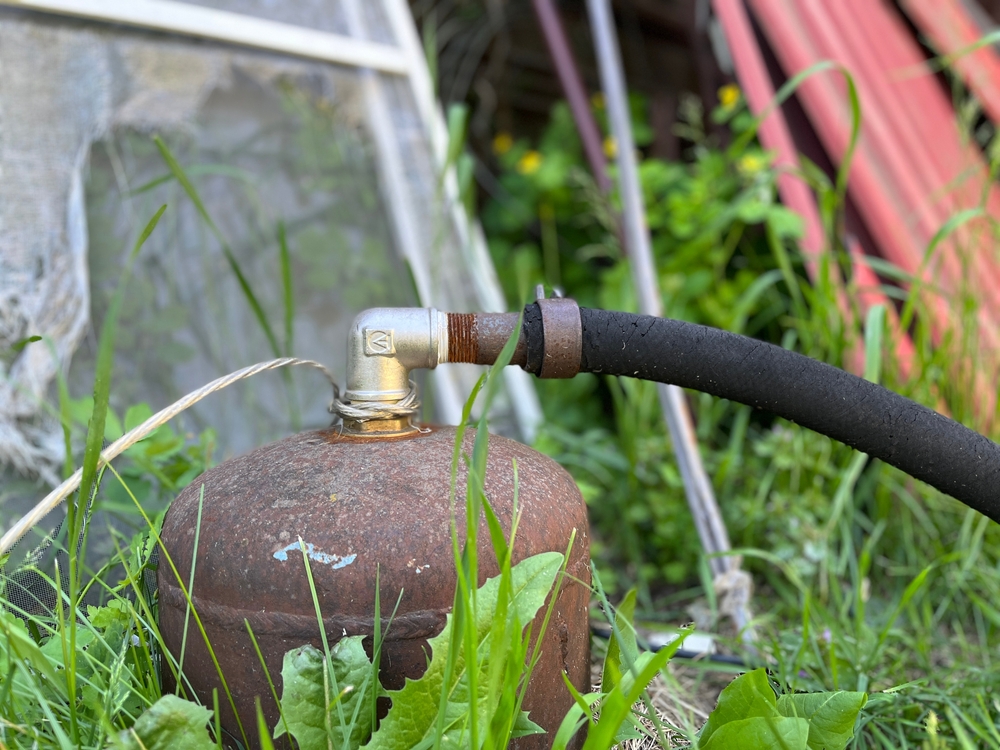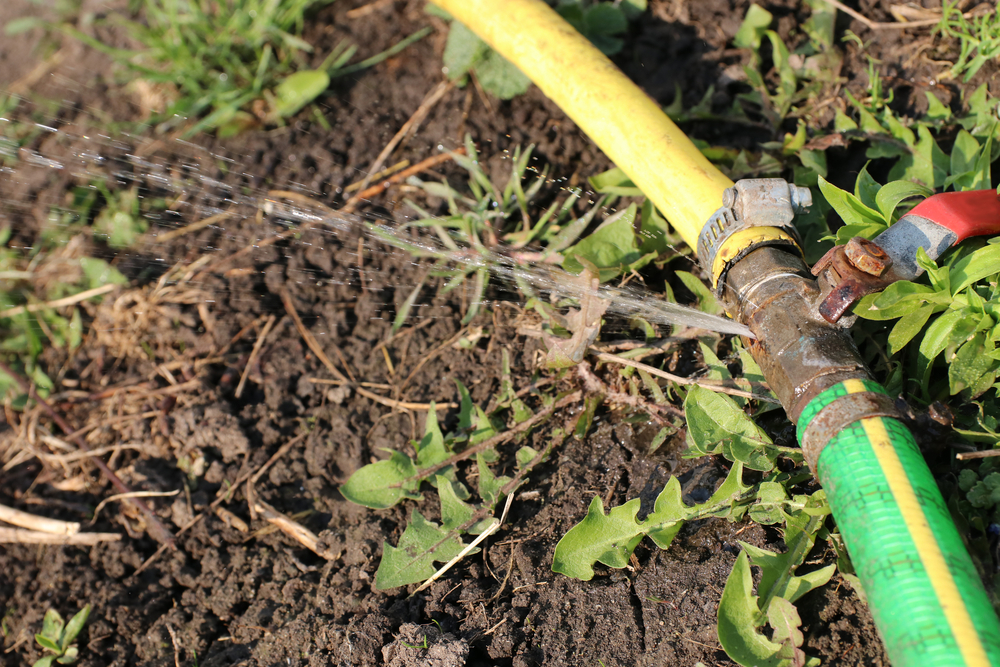A garden hose that is covered in corrosion can be a huge hassle, especially when you need to use it for watering your plants or cleaning your car. If you’re dealing with this situation, there are a few things you can do to remove the corrosion and get your hose back to working order.
One of the easiest ways to remove corrosion from a garden hose is to simply soak it in vinegar. There are many other natural ways like using lemon or lime, baking soda, and hydrogen peroxide. You can also use WD-40, which is a lubricant and penetrant that can help to loosen the corrosion.
What Causes Corrosion

Corrosion is when the metal starts to break down and deteriorate due to exposure to water, air, or other chemicals. There are different factors that cause corrosion on garden hoses so let’s look into those:
High Oxygen Levels
One of the most common causes of corrosion in garden hoses is high oxygen levels. Rust forms in the presence of oxygen, so if your hose is constantly exposed to high oxygen levels, it’s more likely to develop corrosion.
Low PH levels
Another cause is low pH levels. Hoses that are constantly exposed to soil with a PH of six to seven are more likely to corrode.
Exposure to Sunlight
The ultraviolet rays from the sun can break down the metal, causing it to become weak and brittle. This is why it’s important to store your hose in a shady spot when you’re not using it.
Hard Water
Because it is high in minerals, hard water can also cause corrosion on garden hoses. The minerals can break down the metal, causing it to rust and deteriorate.
Exposure to Saltwater
Saltwater is especially corrosive, so it’s important to rinse off your hose after each use if it’s been exposed to salt water.
Chemical Exposure
Chemicals can react with the metal in the hose, causing it to corrode. It’s important to always rinse your hose off after using any type of chemical on your plants.
Bacteria
Organisms like sulfate and iron bacteria thrive in damp environments like your hose and may cause corrosion.
Sediments
Sediments in the water can also cause corrosion. This is why it’s important to flush your hose out after each use.
How to Remove Corrosion from Garden Hose
Luckily, there are many ways to remove corrosion from your garden hose and turn it back to its original condition. Let’s take a close look at these tips and tricks:
Vinegar
Vinegar is known for its many uses, and removing corrosion from garden hoses is just one of them. Simply fill up a bucket or sink with vinegar and water, and let your hose soak for a few hours. Once the hose has soaked, use a brush to scrub away any remaining corrosion, then rinse the hose well with water.
Lemon or Lime
Like vinegar, lemon or lime juice is also acidic and will help to remove corrosion. Soak your hose in lemon or lime juice for a few hours before rinsing it off with water.
Baking Soda
Baking soda is another common household item that can be used. It is a mild abrasive that will help to loosen the corrosion so that you can scrub it away more easily. To use baking soda on your hose, mix equal parts of baking soda and water to form a paste. Apply the paste to the affected areas and let it sit for a few minutes then rinse.
Hydrogen Peroxide
Hydrogen peroxide is a strong oxidizer that will break down the corrosion so that you can rinse it away. To use hydrogen peroxide on your hose, mix equal parts hydrogen peroxide and water. Apply the mixture to the affected areas and let it sit for a few minutes before rinsing it off.
WD-40
WD-40 is a lubricant and penetrant that can help to loosen the corrosion so that you can scrub it away more easily. This is widely available and can be found at most hardware stores. To use WD-40, simply spray it on the affected areas and let it sit for a few minutes before scrubbing with a brush. Rinse the hose well with water afterward.
Final Thoughts
Garden hoses are particularly susceptible to corrosion because they’re often left outside in wet or humid conditions. The best way to deal with corrosion is to prevent it from happening in the first place but if your hose does become corroded, there are many ways to remove the corrosion and return your hose to its original condition.
Vinegar, lemon or lime juice, baking soda, hydrogen peroxide, and WD-40 are just some of the many household items that can be used to remove corrosion. With a little bit of care and attention, you can keep your garden hose in good condition for many years to come.
